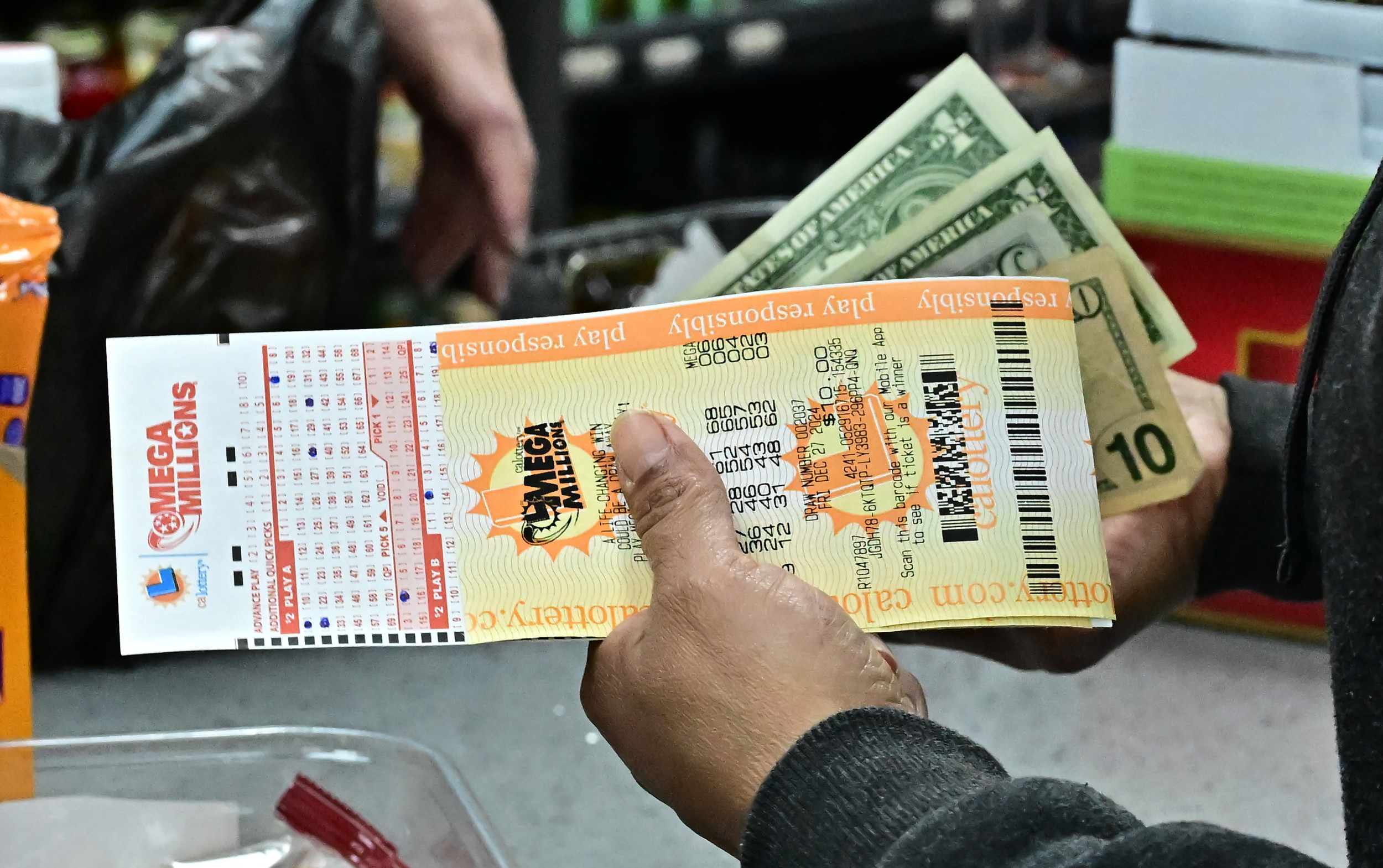With Donald Trump primed to enter the White House for his second term in January 2025 after an emphatic victory in the presidential election, Ukraine finds itself at a junction in its defense against Russia's brutal war to bring Kyiv under Moscow's control.
Trump during his campaign claimed he could end the war within a day by forcing the two sides to the table to agree on a peace deal. The Republican president-elect believes the U.S. is sending too much money to Ukraine in the form of military aid.
Russia's war on Ukraine has ground to a bloody stalemate in recent months, with neither side able to decisively break the deadlock. Russia launched its full invasion of Ukraine in February 2022, though the conflict broke out in 2014 when its forces annexed Crimea.
Ukraine has steadily received hundreds of billions of dollars in military aid from the U.S. and other Western allies. But Kyiv pleads for much more than it currently gets, arguing it is defending the whole of Europe against Russia's broader imperial ambitions.
Russia, meanwhile, has struggled with huge troop and equipment losses, relying on military trade and aid from partners such as China, Iran, and North Korea in order to sustain an invasion that, from Moscow's original plans, should have been over in weeks.
President Volodymyr Zelensky of Ukraine has said he not only wants to definitively repel Russia's invasion, he also wants to recapture territories lost to Russian President Vladimir Putin since 2014, including Crimea and the Donbass.
Trump's victory makes both of those scenarios look even less likely than before. So, has Trump's win cost Ukraine the war? Newsweek put the question to experts in geopolitics and international relations. Here's what they said:

Fabrice Pothier, CEO, Rasmussen Global
One thing we know about Donald Trump is that he does not want to be seen as having made a bad deal. If he hands Putin a victory, it would be seen as a humiliating defeat for the United States—and he would not want to own that.
If he wants to make America great again in the eyes of the world, he needs to be bolder than Biden: By bringing Ukraine into NATO as the foundation of a peace agreement.
It will cost U.S. taxpayers less to support Ukraine inside NATO than outside on an ad-hoc basis.
Stephen M. Walt, Robert and Renee Belfer Professor of International Affairs, Harvard Kennedy School
Ukraine was not going to" win" the war—if winning means regaining its lost territory—and Kyiv is going to have to cut a deal with Moscow eventually. Trump's victory will weaken its bargaining position considerably, however, and it will have to accept an even worse outcome than it might have achieved with Harris in office.
Barry R. Posen, Ford International Professor of Political Science, MIT
It has been clear for some months that Ukraine is unlikely to recover its lost lands through military action. Russia is too strong. Indeed, Ukraine is losing more territory even now.
Ukraine did manage to maintain its political autonomy, and it has seemed strong enough on the ground, with Western help, to defend against a complete Russian takeover.
With Trump's election, the notion of reversing Russian gains seems utterly implausible. Ukraine may be able to continue to defend most of its remaining territory, with the help of its other allies, but it will get only modest help from the US.
It is also likely that Trump will indeed be willing to negotiate with Russia "about Ukraine, without Ukraine."
James Carafano, Senior Counselor to the President and E.W. Richardson Fellow, The Heritage Foundation
Of course not. A free and secure Ukraine is in America's interest.
The president wants the fighting to stop, so do Ukrainians. He wants the country rebuilt. So do Ukrainians. I think interests will converge.
Most of the conservative concern in the U.S. was there was no plan and a risk-averse president. That changes now.
Dr. Jamie Shea, Associate Fellow, International Security Programme, Chatham House
On Ukraine, it's too early to say. There is strong support for Ukraine among Republicans and they don't want to see the U.S. caving into Russia. The entry of North Korea into the war and China and Iran's military support for Russia changes the geo-strategic calculus for the U.S. Trump will not want to appear weak.
Moreover, if Republicans control Congress, aid to Ukraine is no longer a partisan issue of frustrating the foreign policy of a Democratic Biden administration.
Trump will get different advice from his aides on Ukraine and we will need to see what side of the fence he comes down on. But Trump will certainly demand a more realistic and credible strategy for ending the war and shift more of the burden of helping Ukraine to the Europeans and NATO.
Key question: Will he seek to cancel the billions of dollars of U.S. military and financial support to Kyiv that are already in the pipeline following Congressional approval of the $61 billion supplemental last summer?
Professor Mark Webber, Department of Political Science and International Studies, University of Birmingham, U.K.
It is simply too early to tell. Trump is a skeptic of the war and has a poor relationship with Zelensky.
But the bromance with Putin is exaggerated. Trump may seek to start talks with the Kremlin after his inauguration but he will not take kindly to a Putin who seeks to exploit American goodwill.
Trump's self-image is as a deal-maker. He accepted a soft deal on Afghanistan, but he could be tougher on Ukraine once he realizes the business opportunity (arms transfers that benefit American companies) for retaining Ukraine in a Western orbit. He will also not want to be bested by Putin.
My view, therefore, runs against the common narrative of Trump as an appeaser. It was Germany and France pre-2020 who went easy on Russia over Ukraine via the Minsk process and the Normandy format.
I think Trump will want to scale back military assistance to Ukraine and will seek to engineer talks—but the latter will not be a sell-out of Ukraine's interests
Victoria Vdovychenko, Associate Professor and Joint Programme Leader, Centre of Geopolitics, University of Cambridge; Program Director for Security Studies, Center for Defence Strategies
As the vote counts progress, the much-discussed 'mono-unity' in Washington appears to be taking shape. For the first time in years, both the presidency and a Congressional majority will belong to the Republican Party.
Trump's team claims to be crafting a range of strategies for resolving Russia's war against Ukraine, yet so far, Kyiv has not seen any concrete, favorable outcomes.
One notable proposal comes from General Keith Kellogg and Fred Fleitz, two of Trump's close advisors. Their ambitious plan envisions a ceasefire along current battle lines, delaying Ukraine's NATO membership indefinitely, and equipping Ukraine with substantial military support to enforce peace.
However, upon closer examination, the plan's viability appears shaky. The notion that Ukraine would surrender 20 percent of its territory is implausible. Equally hard to imagine is Putin accepting a U.S.-armed Ukraine. Domestically, the prospect of Republican lawmakers endorsing such a proposal is also uncertain.
In practice, while bold, this plan is unlikely to align with what Ukrainians would want. Trump's unpredictability, however, is seen by some experts as a potential advantage.
Notably, during his previous term, Trump enforced sanctions against Nord Stream, suggesting he could take a hard line on Russia when it suits U.S. interests.
In his initial address today, Trump pointed out that the U.S. is a leader in "liquid gold," boasting oil and gas reserves surpassing even those of Saudi Arabia and Russia.
By leveraging new policies to expand domestic energy production, Trump suggested the U.S. could influence global energy prices (for example lowering the prices as they are for a moment)—targeting the Achilles' heel of the Russian economy which will have limit to continue military activities in Ukraine as well as be a challenge for internal (domestic) stability.
So, the US under Trump might use "liquid gold" as a driver for its national economy as well as the factor to influence other partners.
This message carries significant implications for Ukraine, offering a glimpse into how Trump might approach Putin.
Central to the discussion in Europe is the lingering question: Will the U.S. under Trump abandon Ukraine and its EU allies to confront Russia alone?
Trump's historically critical stance on aid to Ukraine justifies some concern. Observers will be closely watching to see what his proposed "peace plan" might actually entail.
After his September meeting with Zelenskyy, Trump expressed confidence in brokering a deal that would be "good for both sides."
As for Congress, the final election results are still pending, but a Republican-controlled Senate seems probable. While there will be significant pro-Ukraine voices in Congress, much will depend on Trump's own policies and initiatives.
Bipartisan consensus has always been crucial for us, and now it is an even more urgent necessity. We need to continue emphasizing how supporting Ukraine aligns with American interests.
Whether Ukraine's fate is sealed or secure depends on several factors, listed here in order of importance:
1. The Armed Forces of Ukraine and the broader Defense Forces.
2. Ukrainian society, which provides essential support and resilience on the home front.
3. International partners funding Ukraine (with the U.S. being just one among many).
I have often emphasized that attacks will target our vulnerabilities—specifically, the resilience of our society. You will see more messages on how Ukrainians might collapse that don't correspond to the true feeling of Ukrainians as well as their ambitions to win the existential war.
In the short term, this plan envisions Ukraine remaining deeply reliant on continuous military and economic support from its Western allies.
However, with public support diminishing and political winds shifting in some Western nations, sustaining this aid could become increasingly challenging.
If the West persists with its "enough not to lose but not enough to win" strategy, Kyiv's discussions will remain centered on deterrence as a strategy of victory.




















 English (US) ·
English (US) ·